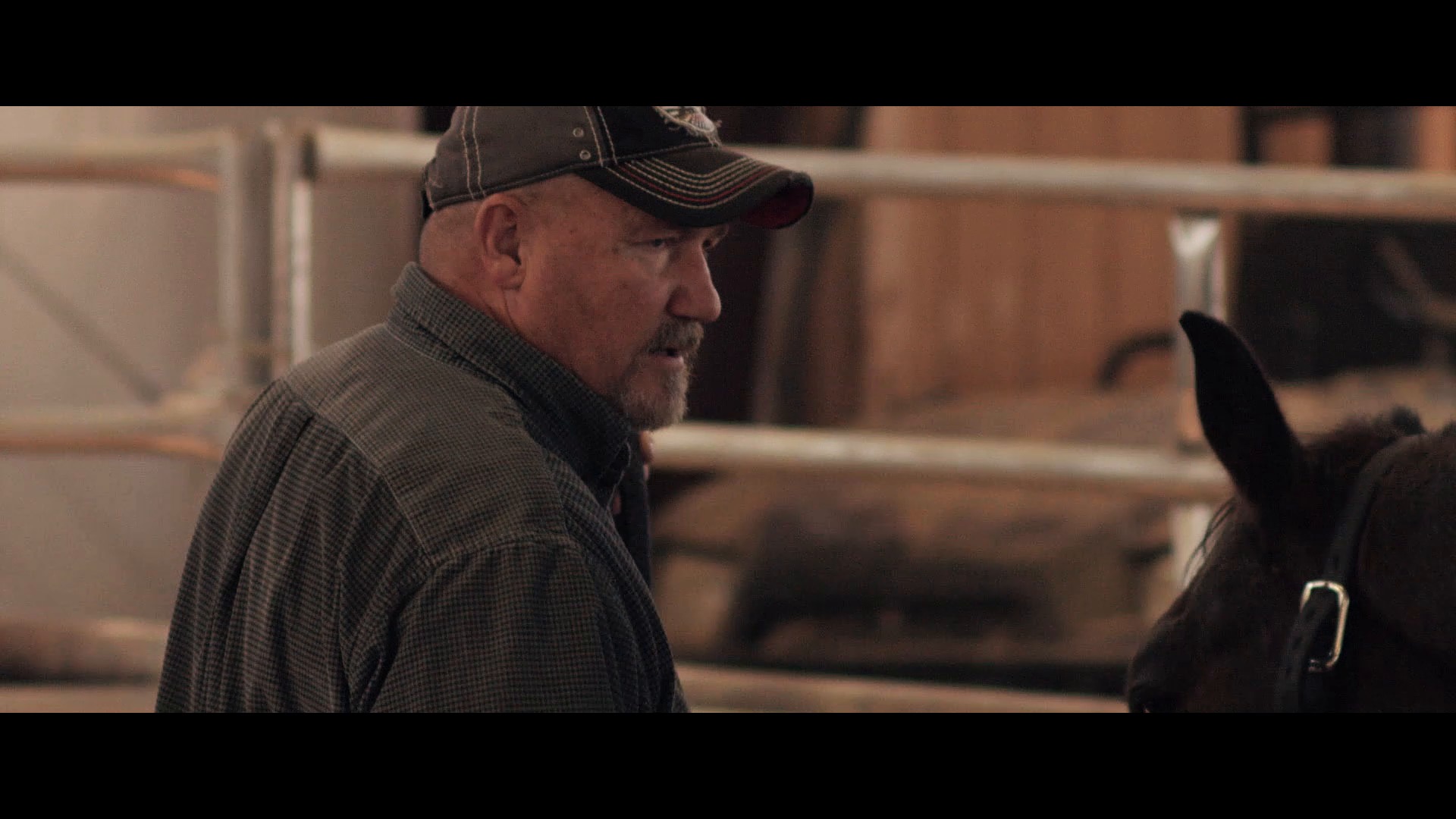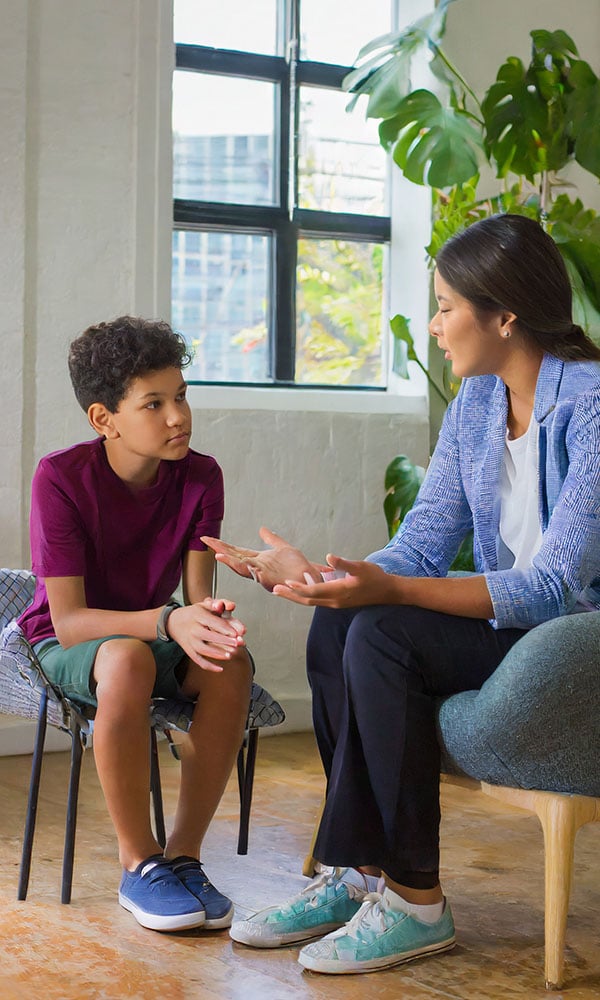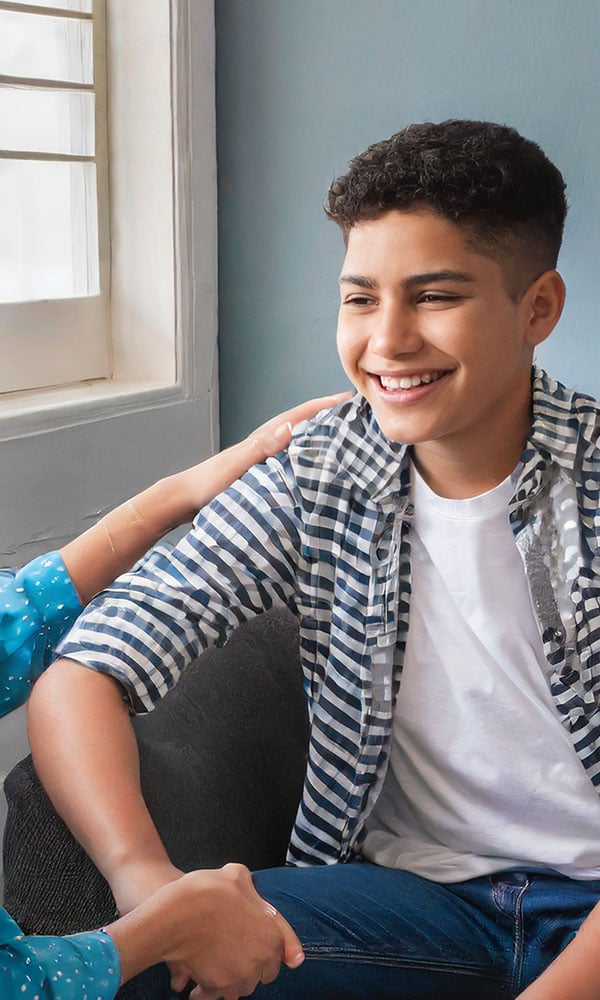
Restoring Lives: Oxbow Academy's Compulsive Sexual Behavior Treatment for Teenage Boys
Welcome to Oxbow Academy - the residential treatment center designed exclusively for teenage boys (ages 10-17) struggling with problematic or compulsive sexual behavior. Our expert team specializes in treating a range of issues including:
- child or sibling sexual abuse,
- pornography addiction,
- chronic masturbation,
- inappropriate touching,
- sexual reactivity,
- and other problematic sexual behaviors.
Our sex-specific residential treatment center ensures a safe and supportive environment where boys can heal, overcome their struggles, and regain control of their lives.

What Makes Oxbow Academy the Best Choice for Your Son?
When it comes to finding the best treatment program for your teenage son struggling with compulsive sexual behavior, Oxbow Academy stands out as a top choice. Our academy is uniquely equipped to address the complex issues associated with this condition, providing compassionate, specialized, and effective care for your son.
As one of the leading sexual abuse treatment centers and residential treatment centers for teen porn addiction, Oxbow Academy offers specialized programs tailored specifically to meet the needs of your son. Our team of experienced professionals, including licensed therapists, understands the delicate nature of these issues and provides a safe and supportive environment for healing.

At Oxbow Academy, we believe in treating the whole person, addressing not only the symptoms but also the underlying causes of compulsive sexual behavior. Through evidence-based therapies, individualized treatment plans, and psychosexual evaluations, we empower your son to develop healthier coping mechanisms and build a positive sense of self.
We understand the challenges you and your son are facing, and we are here to help. Choose Oxbow Academy for the best possible care for your son and the opportunity for a brighter future.

Top Program to Help Teen Boys (10-17) Struggling With Sexually Inappropriate Behavior Located In Utah.
We're Proud to Achieve the Highest Standards of Accreditations and Professional Memberships

Backed by The Joint Commission which ensures programs adhere to the highest quality of clinical and medical practices.

Designated as a NATSAP Research Program, showing our commitment to well-researched practices in our program.

Full member of the National Association of Therapeutic Schools and Programs (NATSAP), which ensures regulation of programs that serve children and adolescents.

This program is proud to be Cognia Accredited. Cognia provides accreditation to schools that have earned recognition for their reputation and high educational standards.

Oxbow Academy is fully licensed in the state of Utah.

Oxbow Academy is a certified Student and Exchange Visitor Program (SEVP), allowing us to welcome and support international students.


Founding member of Choose Mental Health, guiding families with questions about mental health.
How Oxbow Academy Helps Teens With Problematic or Compulsive Sexual Behaviors
At Oxbow Academy, we understand that no two teens are alike. That's why our carefully crafted communities cater to the specific needs of different populations. We know that problematic, inappropriate, or compulsive sexual behaviors can stem from various underlying issues. That's why our thorough evaluation and treatment plan digs deep to uncover the root causes and extent of your teen's behavior. Armed with this vital information, our team of experienced professionals creates a tailored treatment plan to address these underlying issues, bring about lasting change, and safely transition to life after treatment.

Start Healing Now
Get your teen the help they need. Our admissions team offers a FREE and confidential consultation to address your son's compulsive sexual behavior. Contact us now.
At Oxbow Academy, we understand that every student is unique. That's why we offer three treatment communities for
- pre-teens and young teenage boys, ages 10-13
- ASD and neurodiverse boys, ages 14-17
- and neurotypical boys, ages 14-17
Our specialized services are designed to cater to the individual needs of each student, ensuring their success. Our team of experienced professionals has a deep understanding of working with students in each of these unique communities. They are trained to provide compassionate care and support for all students, regardless of their backgrounds or diagnoses.

It is crucial to fully understand the magnitude and underlying factors behind your son's compulsive sexual behavior in order to find effective solutions and provide the support he needs. Oxbow Academy provides the most comprehensive evaluation possible for teenage boys with sexually inappropriate behavior. This procedure takes approximately 90 days and involves:

- building a safe and secure therapeutic bond to support your son as he lets go of shame, embarrassment, and secrecy as he starts to rebuild trust with you.
- occurs in a separate residential and clinical community, due to ⅓ of our students who are deemed to not need sex-specific treatment.
- Teenage boys are given age-appropriate sexual health education that helps them understand the thinking errors, legal ramifications, and the root causes of their problematic behaviors.
- A complete sexual history and therapeutic disclosure, verified with a clinical polygraph. Please note that a clinical polygraph is used for therapeutic purposes only, and is different from a traditional polygraph.
- A Psychosexual Evaluation, conducted by an independent psychologist, who uses an accurate and comprehensive summary of our evaluation and treatment Plan to provide parents with:
- a student's Sexual Behavior Risk Assessment (SBRA)
- unbiased recommendations for treatment placement
- an individualized treatment plan for their son
Compulsive Sexual Behavior Treatment Program for Teens
Oxbow's sex-specific treatment approach is uniquely tailored for adolescents, focusing on a holistic and strength-based methodology. Our clinicians focus on addressing the underlying issues that led to your son's sexually inappropriate behavior, giving your family the tools they need to move forward with confidence. Our treatment approach includes:

CSAT Therapy for Teens
All of Oxbow’s therapists are CSAT-certified or trained. Many of them are also certified or trained in additional modalities, including CBT, DBT, EMDR, and more. This diverse range of certifications enables Oxbow to deliver customized, trauma-informed treatment tailored to meet the specific needs of each individual student. Every student will participate in:
- Weekly individual therapy sessions
- Weekly family therapy sessions
- Daily group therapy, equine therapy, experiential therapy, or community focus group sessions
Helping Your Child Successfully Re-enter the Real World After Treatment
During the last 1-3 months before graduation, Oxbow students may be given the option to transition to our Independence House. This allows the young men to encounter the realities of daily life while still receiving the support and guidance of our treatment program. As they enter this stage, they are granted privileges like heightened levels of personal responsibility and access to electronic devices.
For students to safely transition to life after treatment, it is crucial that they develop positive coping skills and attitudes to replace any negative behaviors. This is vital for their overall success. Using the Good Lives model, our therapists guide students in:
- identifying their strengths
- setting goals for the future
- and rekindling a sense of hope
Your son's future starts to brighten and he begins to feel hopeful and on track towards achieving his goals.
Every student’s transition process is individualized to their unique needs. Depending on their treatment plan, each student’s transition may include:
- A final Sexual Behavior Risk Assessment (SBRA) to demonstrate reduced risk & suitability to return home
- Practicing home visits
- Establishing rules, boundaries, and safety guidelines for the whole family
- Relapse Prevention Planning
- Empowering parents and family members with the necessary skills to navigate reunification, allowing them to thrive in the future.
- Greenwood testing to assess their job interests and talents, enabling them to gain a better sense of direction in their lives.
A Place of Healing: Safe, Nurturing, and Supportive
The safety and well-being of students is a top priority at Oxbow Academy, with a continuous focus on enhancing security measures to ensure a transparent and accountable environment for both students and staff.
For many teens like yours, the culture at Oxbow Academy becomes part of the safety net. Students understand each other and their issues. They motivate each other to change.
As students come to realize their old coping tools and behaviors do not work they help each other develop new tools for new lives. They begin to discover new strengths and interests, develop purpose, and find direction in life.
Learn More About How Student Life and Community Culture Contribute to the Healing Process »

Parents' Role in the Treatment Process: How You Can Help Your Son
By enrolling your teenager at Oxbow Academy, you are also enrolling yourself. Our treatment program aims not only to heal your son but also to heal your entire family. Through attending Parent Seminars and participating in Family Therapy sessions, both you and your son will learn new skills to enhance your relationships and overcome negative patterns. Your son's therapist will arrange visits with him as needed, and you can stay connected with your child's progress through our Parent Portal & weekly social calls. Never miss a beat. Join now!

When your teenager is struggling with problematic, inappropriate, or compulsive sexual behaviors, looking for help can feel overwhelming. We understand the uncertainty and concern that arises during this process as you wonder, "Do residential treatment centers truly work?" Here at Oxbow Academy, we want to assure you that there is indeed hope. Our most recent results vividly depict the transformation and recovery experienced by our clients. It's not solely about numbers; it's about the incredible journeys of healing and personal growth that we have witnessed.
We invite you to explore our outcomes and delve into the stories of resilience, hope, and success that Oxbow families have experienced. Our unwavering dedication to providing top-quality care for your son remains steadfast. In order to achieve this, we harness the transformative power of outcomes. Beyond being mere statistics, outcomes play a crucial role in monitoring client progress, assessing our program, and continually making improvements.
Learn more about how Oxbow Academy integrates research and outcomes into our program. »

How to Enroll Your Son in Oxbow Academy’s Residential Treatment Program
Enrolling your son in Oxbow Academy's residential treatment program is a crucial step toward his healing and recovery from compulsive sexual behavior. We understand that this process can feel overwhelming, but we are here to guide you every step of the way.

To begin the enrollment process, we recommend reaching out to our admissions team. All calls are confidential and you will be able to talk to someone who can provide a safe andnon-judgmental environment for you to discuss this issue. Our team will be able to answer any questions you may have, provide detailed information about our program, and help you understand the next steps. Our team is compassionate, knowledgeable, and dedicated to supporting you and your son throughout this journey.
Once you have decided to enroll your son, our admissions team will work with you to gather the necessary documentation and complete the required paperwork. We understand that each family's circumstances are unique, and we strive to make the enrollment process as seamless as possible.
At Oxbow Academy, we welcome students from all over the world. Our team is experienced in coordinating travel arrangements and can assist you in making travel plans for your son to our residential treatment center.
Remember, you are not alone in this process. Our dedicated team is here to support you and your son, providing the highest quality of care and guidance every step of the way. Together, we can help your son embark on the journey to healing and create a brighter future.
Your Family Can Be Whole Again
Your teen can recover from compulsive sexual behavior. Contact one of our trained representatives for a free, private consultation at 855-676-4272.
